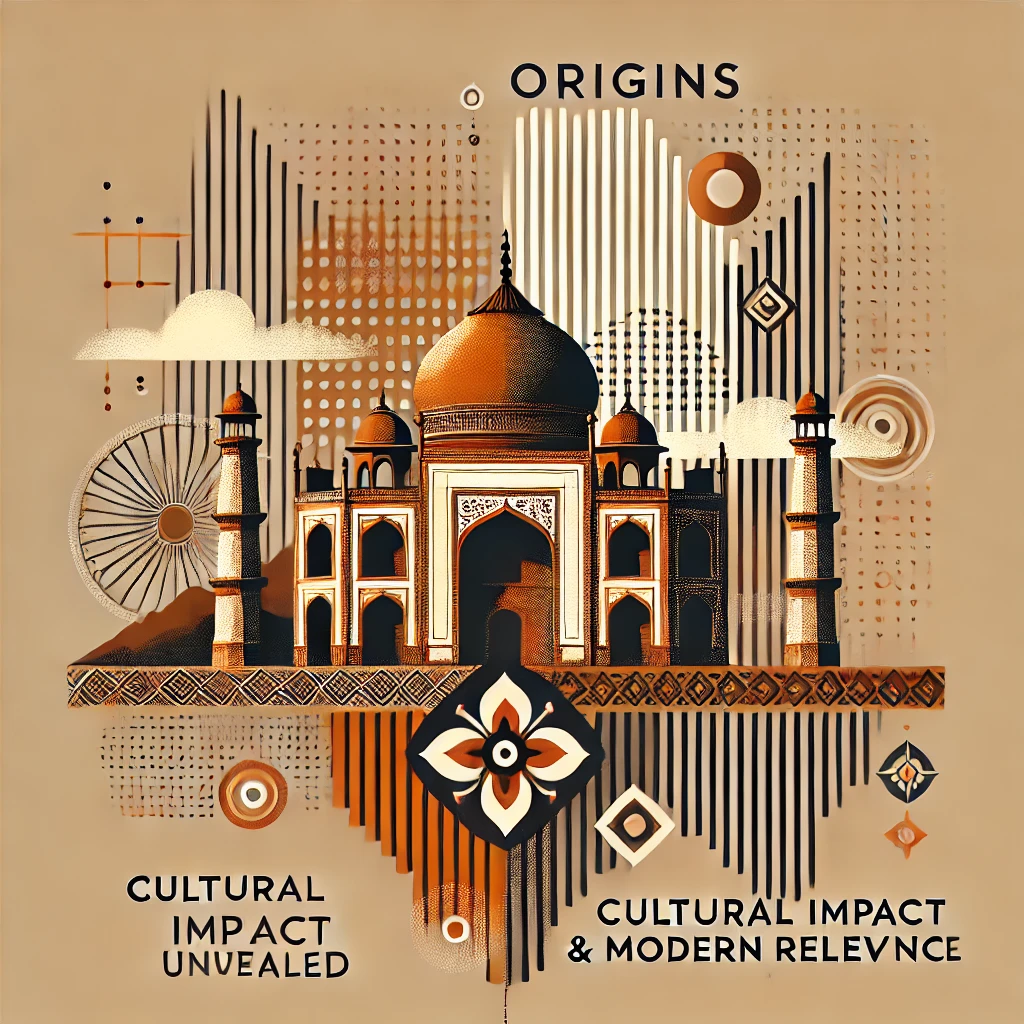
In today’s rapidly evolving world, traditions and cultural practices often hold a unique significance. One such concept is “Agrawau,” a term deeply rooted in cultural identity, yet it carries modern applications as well. With its blend of history, cultural richness, and entrepreneurial spirit, Agrawau has remained a point of pride and an influential force for the community that embraces it. This article will delve into Agrawau’s historical origins, its cultural importance, modern applications, and the potential future impact on a global scale.
Introduction to Agrawau
Agrawau represents much more than a word; it’s a cultural symbol and a powerful identity marker. Its significance is deeply felt in regions and communities with historical connections to the Agrawal heritage. In the following sections, we’ll explore how Agrawau reflects the spirit of cultural pride, business acumen, and social values that are still celebrated today.
Origins and Etymology of Agrawau
The term “Agrawau” is believed to originate from Agra, a city in India known for its rich history and as the birthplace of the Agrawal community. This community traces its lineage back to Maharaja Agrasen, a legendary ruler who established the kingdom of Agroha in Northern India. The term “Agrawau” reflects a deep-rooted cultural identity that continues to be a source of pride, representing the descendants of Maharaja Agrasen and the traditions he stood for. Understanding Agrawau’s origins gives us insight into how this community-based identity has been passed down for generations.
Historical Significance of Agrawal and Agrawau
Agrawau’s historical roots are tied to the Agrawal community, which is widely known for its emphasis on trade, social responsibility, and ethics. According to historical accounts, Maharaja Agrasen established the kingdom of Agroha as a place of fairness and economic equality. His values laid the foundation for the Agrawal community’s distinctive approach to business and social welfare. The system of contributing “one brick and one coin” to support newcomers into the community symbolised this spirit, reinforcing the community’s dedication to unity and support.
Agrawau as a Symbol of Identity and Heritage
Agrawau holds immense value for those who identify with the Agrawal lineage. For many, it represents a connection to their heritage and a reminder of their cultural values. In a world where globalisation is blending cultures, Agrawau remains a unique identifier that unites people through shared traditions and history. Many Agrawals living abroad still embrace Agrawau as part of their identity, preserving their customs and values no matter where they reside.
Cultural Impact and Modern-Day Relevance of Agrawau
The cultural practices associated with Agrawau reflect the community’s values of fairness, integrity, and social welfare. The Agrawal community’s approach to business has often been marked by ethical practices and a focus on social responsibility. These values are still seen today as many Agrawals lead charitable initiatives and contribute to societal development. This blend of culture and modern influence makes Agrawau relevant not only as a historical term but as a symbol of meaningful impact.
Agrawau in Entrepreneurship and Business
Known for their entrepreneurial spirit, the Agrawal community has contributed significantly to the business landscape. Agrawau embodies this spirit, representing innovation, resilience, and a strong business ethic that has driven the success of Agrawals worldwide. This entrepreneurial influence is particularly strong in industries like trade, finance, and technology, where Agrawals often lead through ethical business practices and a commitment to fair trade. Embracing Agrawau has become synonymous with the pursuit of success, innovation, and community-driven business values.
Economic Impact of Agrawau
Agrawau is more than a cultural marker; it also has substantial economic implications. The Agrawal community’s reputation for integrity in trade and commitment to ethical business has led to economic success. In India and beyond, Agrawals have made contributions to the economy through enterprises in various sectors. Agrawau is associated with this legacy of economic resilience, symbolising the community’s ability to adapt and thrive in changing markets. Many Agrawal-owned businesses continue to support local economies, offering employment opportunities and fostering economic growth.
Agrawau and Globalization
As the Agrawal community expands globally, Agrawau’s significance has also spread, particularly to countries like the United States, United Kingdom, Canada, and Australia. In these countries, Agrawal entrepreneurs and professionals are known for their contributions to the economy, often bringing a blend of cultural values and modern business practices. Agrawau thus represents both a rich cultural identity and a globally recognized symbol of successful, ethical business practices. This global influence allows Agrawals to stay connected to their heritage while making a positive impact in their communities abroad.
Challenges Facing Agrawau Today
Preserving Agrawau’s cultural heritage in today’s fast-paced world presents challenges, especially among younger generations. Globalisation, modernization, and the blending of cultural practices can sometimes dilute traditional values. Many young Agrawals may feel less connected to Agrawau, prioritising modern lifestyles over traditional customs. However, community leaders and organisations are working to maintain these traditions through educational programs, digital archives, and cultural events. Addressing these challenges is essential to ensure that Agrawau remains relevant for future generations.
Agrawau in Sustainability and Community Impact
Agrawau’s emphasis on community welfare aligns well with modern sustainability practices. The concept of contributing to societal welfare, as taught by Maharaja Agrasen, reflects a spirit of philanthropy that is still strong in the Agrawal community. Many Agrawal families and businesses actively participate in charitable initiatives, supporting causes like education, healthcare, and environmental sustainability. This focus on social impact highlights Agrawau’s continued relevance in a world where sustainability and community support are increasingly valued.
Future of Agrawau: Sustainability and Innovation
Looking forward, Agrawau’s significance is likely to grow as the world becomes more interconnected and values like ethics and social impact gain prominence. Agrawau can play a role in inspiring sustainable practices and ethical business. As more people recognize the importance of traditional values, Agrawau’s teachings of fairness, unity, and social welfare will continue to resonate. Future generations can look to Agrawau as a symbol of heritage that embraces innovation while staying true to core values.
Common Misconceptions about Agrawau
Many people outside the Agrawal community may misunderstand Agrawau, viewing it as a purely historical or cultural relic. However, its real significance extends to its adaptability in modern contexts, from business practices to social responsibility. By addressing these misconceptions, it becomes clear that Agrawau is not only about preserving the past but also about fostering progress and unity in the present.
Conclusion
Agrawau is a powerful symbol of cultural heritage, entrepreneurial spirit, and social responsibility. Its origins are steeped in history, while its relevance in today’s world reflects a community’s resilience and adaptability. From its economic impact to its role in community welfare, Agrawau embodies values that transcend generations and borders. As globalisation continues to reshape societies, Agrawau will remain a meaningful reminder of cultural identity, ethics, and social impact.
FAQs about Agrawau
- What exactly is Agrawau?
Agrawau represents a traditional concept associated with the Agrawal community, symbolising cultural heritage, business ethics, and community welfare. - How did Agrawau originate?
The term originates from the Agrawal lineage, which traces back to Maharaja Agrasen, a legendary ruler known for promoting fairness and social responsibility. - Is Agrawau relevant in modern times?
Yes, Agrawau remains relevant today as a symbol of cultural identity and ethical business practices that are valued globally. - Are there economic benefits associated with Agrawau?
Agrawau is linked to the Agrawal community’s economic success, particularly in industries where fairness and integrity are emphasised. - How does Agrawau contribute to sustainability?
Agrawau’s values of community welfare and social impact align well with sustainable practices, making it a model for ethical and responsible business. - What challenges does Agrawau face today?
Challenges include maintaining traditional values in a modern world where younger generations may feel less connected to cultural heritage.






